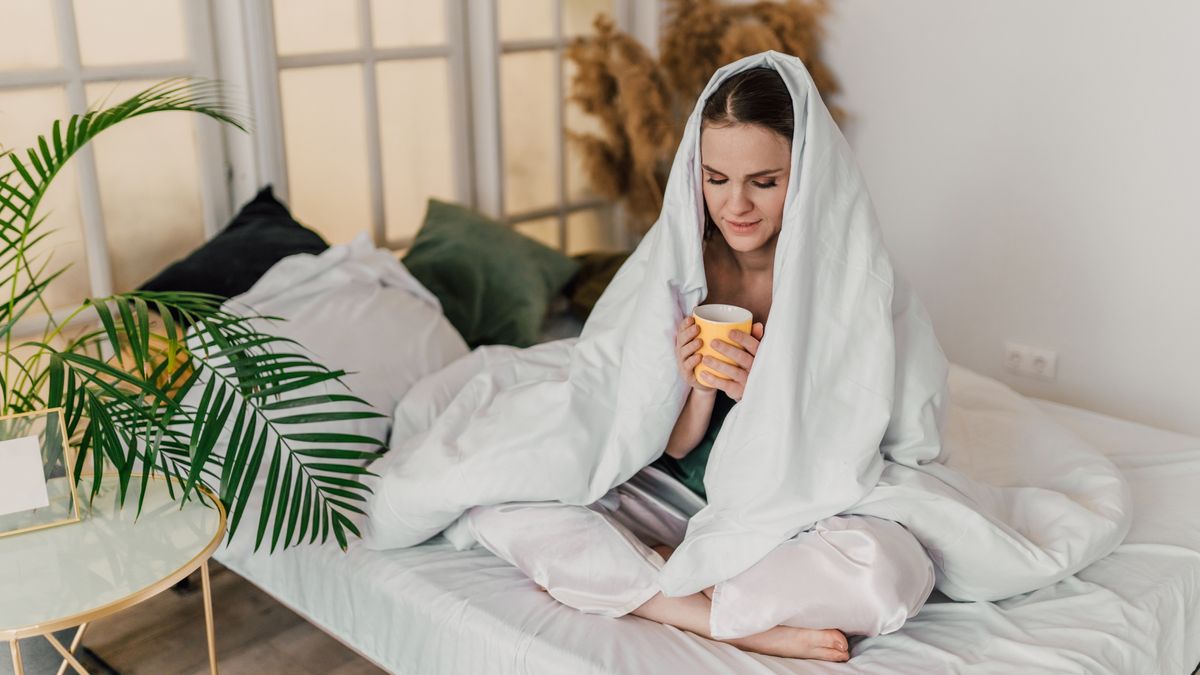For many of us, sipping on a cup of hot tea is a great way to relax before going to sleep on a chilly winter night. However, it’s important to remember that different tea has different properties. So, which are the best teas to help you fall asleep?
From choosing this year’s best mattressfor your sleep type to trying magnesium supplements, there are plenty of things you can do to aid sleep. And there are plenty of teas on the market that promise to help you drift off, but there are also many that can do the opposite.
We’ve called on registered dietician Lena Bakovic at Top Nutrition Coaching to share her top three choices of tea to drink before bed, along with the three you should avoid if you want to fall asleep faster. Read on to find out which teas to drink for a good night’s sleep.
The 3 best teas to drink to improve sleep
While Bakovic says it’s challenging to choose only three sleep-promoting teas as there are so many varieties, you can’t go wrong with caffeine-free herbal teas. “The efficacy of herbal teas may vary on an individual basis,” says Bakovic. “But the key point in choosing a tea to help with sleep is to steer clear of caffeinated teas, which can have the exact opposite effect from the originally intended purpose.”
1. Chamomile tea
Chamomile tea is a classic sleepy tea, with chamomile being featured in many brews marketed as sleep-inducing. The tea is Bakovic’s top choice: “Chamomile tea contains antioxidants which may help with insomnia.”
One such antioxidant is apigenin, which causes a sedative effect and is found in prescription drugs to treat insomnia and anxiety. There’s also been plenty of studies that show chamomile improved sleep quality, and one study found it helped those with insomnia function better throughout the day.
2. Lavender tea
The smell of lavender is probably a familiar soothing scent to you, as the plant is often used in pillow mists, sleep balms, and candles. However, did you also know it can be drank as a calming beverage, too?
“Lavender tea may be helpful with relaxation and stress-reduction for some people,” the wellness expert tells us. “Thus in turn helping with sleep.”
3. Peppermint tea
A popular after-dinner beverage thanks to the way the mint helps aid digestion after a heavy meal, peppermint tea can help to relax muscles before bedtime to help you get ready for sleep, too. This makes it a perfect beverage to sip in-between your evening meal and bedtime.
“A personal favorite before bedtime,” says Bakovic. “Peppermint tea can be really comforting at the end of the day.”
The 3 teas to avoid before bed
According to Bakovic, any caffeinated tea should be avoided before bed, such as green and black teas. “Any kind of tea which contains caffeine will likely be disruptive to a restful sleep, particularly if consumed later in the day,” says Bakovic. “Some people are more sensitive to caffeine than others, but for most of us eliminating caffeine at least 6 hours before bedtime is a good rule of thumb.”
1. Green tea
While there isn’t as much caffeine in green tea as there is in coffee, it’s still a caffeinated drink and may cause sleep issues. On the subject of green tea’s effect on sleep, Bakovic told us that the drink “most definitely can produce sleep difficulties” if consumed too close to bedtime: “Particularly if the green tea leaves have been oxidized to be a darker color which increases their caffeine content. “
2. Chai tea
Chai tea is a type of black tea mixed with different spices, accompanied by milk and sugar. While chai tea’s combination of ingredients can have many health benefits, it’s still caffeinated thanks to the key ingredient of black tea. This will likely cause sleep issues if you’re sensitive to caffeine.
3. Earl grey tea
Like Chai tea, earl grey tea (also known as bergamont tea) is a type of black tea which contains a substantial amount of caffeine, and so is best avoided before bed. In fact, earl grey tea has been known to keep people alert and improve attention instead.
How long before bed should you drink tea?
“With caffeinated teas, such as green tea, Earl Grey, and Chai, it’s best to drink them 4-6 hours prior to bedtime and no later,” the dietician recommends. “As for herbal, non-caffeinated teas and their soothing properties, they can be consumed right up until bedtime, as long as the fluid content does not disrupt sleep whereby an individual is having to use the bathroom frequently during the night. “
However, Bakovic reminds us that these recommendations really vary from individual to individual, and times may need to be tried and tested to see what works best for you. We recommend trying the 10-3-2-1-0 sleep rule, which recommends drinking caffeine 10 hours before bed and no later, while non-caffeinated drinks should be consumed no later than three hours before bed.
Source link
